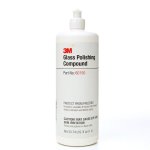AlexThePalex
Member
- Joined
- Nov 12, 2008
- Messages
- 7,808
Anybody know how to polish sanding scratches out of glass?
A painter working for us made a lot of damage to about 10 windows, sanding by hand and with the DTS400. Instead of only sanding the wood around it he also made wide scratches on the first 5 centimeters of the glass and sometimes even in the middle of the window.
The scratches are not deep, but very noticeable. We contacted a specialised company and they didn't want to take the job, saying there is no guarantee they can make it right. The alternative would be to replace all the 10 windows, which would cost 5000 euro in material alone, without installation.
A painter working for us made a lot of damage to about 10 windows, sanding by hand and with the DTS400. Instead of only sanding the wood around it he also made wide scratches on the first 5 centimeters of the glass and sometimes even in the middle of the window.
The scratches are not deep, but very noticeable. We contacted a specialised company and they didn't want to take the job, saying there is no guarantee they can make it right. The alternative would be to replace all the 10 windows, which would cost 5000 euro in material alone, without installation.

